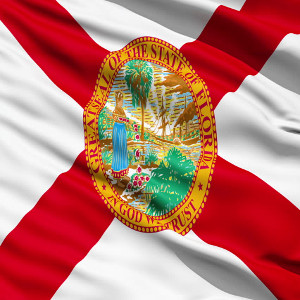
Ending a debate that has raged in the halls of the state capitol, Tallahassee, since early last year, Governor Rick Scott of Florida, his gaming enforcement board and the Seminole Tribe of Florida reached a settlement that will have a sizeable effect on gaming in the Sunshine State.
The new agreement will influence table games, which have started springing up in some of the poker rooms around Florida. Under the agreement signed by the Florida Department of Business and Professional Regulation and the Seminoles, the table games – which included blackjack and other “banked” games (games in which players played against the house rather than each other) – and slot machines will be immediately closed in the poker rooms where they were operating. That closure gives exclusivity for table gaming and slots in the state to the six Seminole properties owned and run by the tribe for the next 13 years of the compact between the two entities.
“The DBPR is glad that the state of Florida has reached an agreement to resolve the ongoing litigation between the state and the Seminole Tribe,” DBPR Secretary Jonathan Zachem noted in a statement reported by Mary Ellen Klas of the Miami Herald. “The agreement ensures the continuity of the current Seminole compact and does not allow for any expansion of gaming.”
What was the driver of the deal? For the state of Florida, it was the money. Under the new agreement, the Seminole Tribe will continue to contribute a monthly revenue sharing program to the state, in part due to the enforcement of the table game and slot ban on non-Seminole operations. That totaled $220 million in revenues that the Tribe put towards the revenue sharing over the past couple of years (and an estimated $120 million per year), but had been held in escrow while both had lawsuits pending in federal court.
In 2010, the Seminole Tribe and the state of Florida agreed to an exclusivity agreement, giving the Seminoles complete gaming rights in the state. That five-year deal expired in 2015 and, as might be expected, the various dog and horse tracks and poker rooms in the area wanted to find a way to get into that area of gaming. The Seminole Tribe called foul, as the renegotiation of the compact was ongoing with state officials, and the Seminoles brought a federal case against the state of Florida for not enforcing the regulations. The state didn’t roll over, instead filing their own countersuit that stated the agreement had expired and that the Seminole Tribe, in fact, was violating Florida gambling laws by being in operation.
Federal judge Robert Hinkle ruled last year in favor of the Seminole Tribe, affirming that the state didn’t shut down the “banked” games in the non-Seminole operations per the compact between the two, violating the agreement. After Hinkle made his ruling, the Florida legislature considered expanding gaming in the state – and was unable to come to any agreement – while the Seminoles considered the option of withholding their revenue payments outright until the state enforced the law.
The new agreement, while ensuring that the Seminole Tribe continues its revenue payments in exchange for exclusivity on table gaming and slots, also has an effect on another area of debate in the state. The expansion of casino gaming in Florida, which had seen consideration of new casino operations in Miami and even in the family oriented Disney area of Orlando, is now dead. For the next 13 years (the end of the overall compact between the Seminole Tribe and the state of Florida), there will be no further discussion of expanding gaming inside the state, keeping powerful casino gaming operations out of the Florida market and in the hands of the Seminole Tribe.























